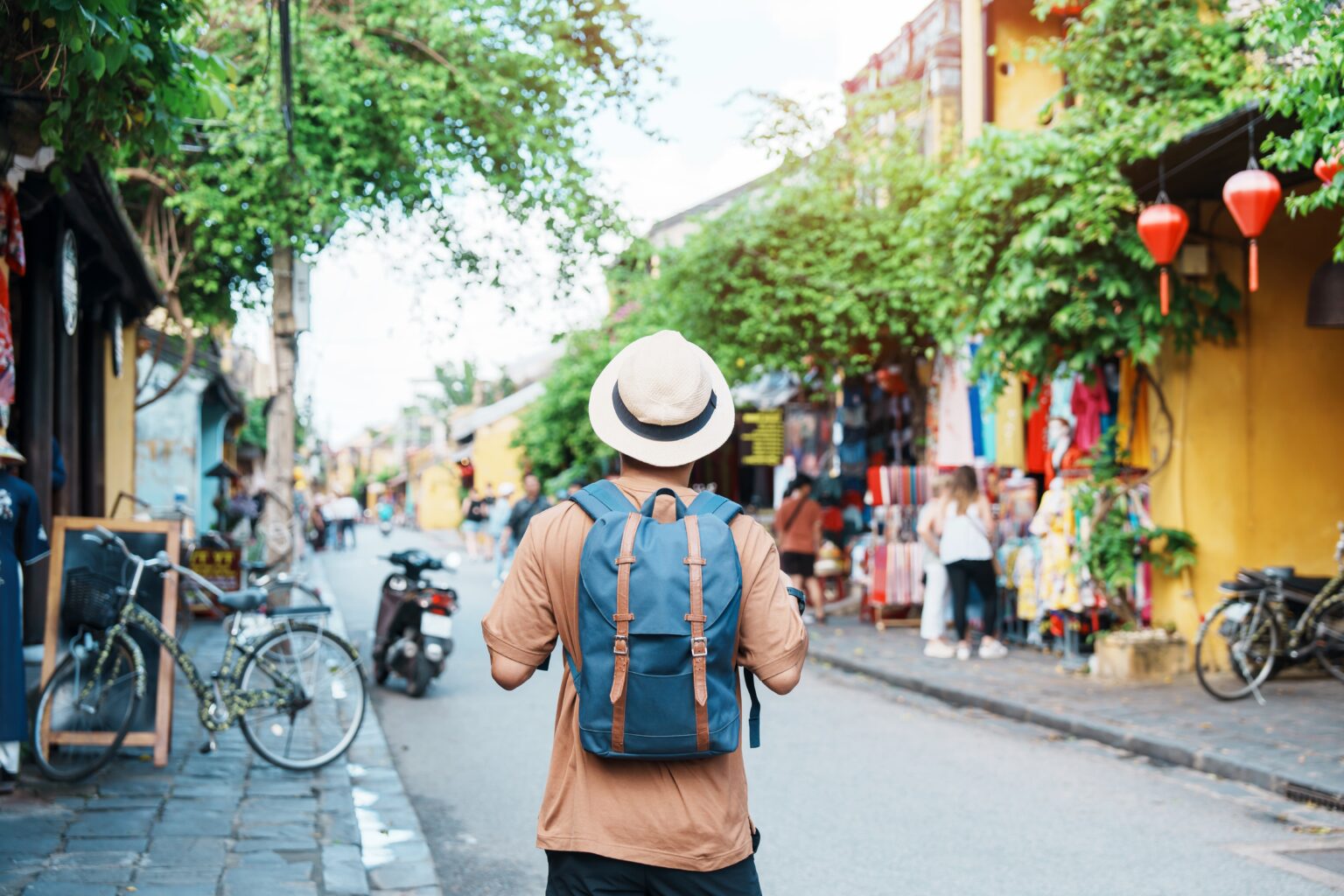If you’ve ever considered traveling solo, you may be feeling a bit apprehensive. It’s normal to have concerns about going out on your own, especially if you’re not familiar with the language or culture. However, with the right preparation, solo travel can be an incredibly rewarding experience.
As someone who has personally experienced the joys of solo travel, I’m here to offer some tips and advice to help you overcome any travel anxiety you may be feeling. From dealing with language barriers to navigating unfamiliar territory, I’ll provide you with the tools you need to make the most out of your solo adventure. So pack your bags and get ready to embark on an exhilarating journey of self-discovery.
1. Do Your Research
Before embarking on your solo trip, it is important to do your homework. Choose a destination with a developed tourist infrastructure, where locals are accustomed to dealing with visitors and many people speak English. This will be helpful if you do not speak the local language.
Research the locale beforehand to understand the lay of the land and get a sense of where you should and should not go. Find out if there are any places that are dangerous to go alone past 9PM. Check the weather forecast to see if it is going to be pouring rain during your stay. Learn about the operating hours of various attractions and businesses. Familiarize yourself with the public transportation system.
By doing your due diligence, you will be able to navigate your destination with confidence and avoid any potential hazards.
2. Hunt Out All-Inclusive Packages
If you’re planning your first solo international trip and feeling overwhelmed with the idea of planning an itinerary or navigating directions in a foreign country, an all-inclusive resort might be the perfect option for you. Not only does it provide everything you need in one place, but it also offers a sense of comfort and security knowing that you don’t have to leave the property if you don’t want to.
One great example of an all-inclusive resort is the Delta Hotels by Marriott Riviera Nayarit in Mexico. This resort is surrounded by serene mountains and features multiple zen pools, making it an ideal place to relax and unwind. If you’re looking for a change of scenery, the resort also offers a shuttle to its nearby Beach Club, where you can enjoy a livelier atmosphere.
In addition to its stunning location resort boasts a variety of dining options, including cuisines from around the world. The resort also has several bars where you can mingle with locals and fellow travelers.
When searching for an all-inclusive resort, look for one that offers a range of amenities and activities to suit your interests. Some resorts may have more of a focus on relaxation and wellness, while others may offer more adventurous activities like water sports or hiking. Consider what you want to get out of your trip and choose a resort that aligns with your goals.
Overall, an all-inclusive resort can be a great option for first-time solo travelers who want a stress-free and immersive experience.
3. Don’t Be Afraid to Talk to People
When traveling alone, it might seem daunting to approach strangers, but being open to talking to people can lead to some of the most memorable experiences. Don’t hesitate to engage with locals who can offer insider tips and hidden gems that you wouldn’t have discovered on your own. Meeting fellow travelers can also enhance your trip and potentially lead to lifelong friendships or future travel partners. Here are some ways to be more open to talking to people:
- Smile and make eye contact with those around you
- Strike up a conversation with someone at a coffee shop or restaurant
- Join a group tour or activity to meet like-minded individuals
- Attend local events or festivals to immerse yourself in the culture and meet new people
Remember, the people you meet on your travels can make all the difference in your experience, so don’t be afraid to step out of your comfort zone and connect with others.
4. Ask the Hotel About Things to Do Locally
When traveling solo, it can be overwhelming to plan your itinerary, especially if it’s your first time. A great way to get started is by asking the hotel staff for recommendations. They are often knowledgeable about the local area and can suggest activities that align with your interests. Don’t be afraid to ask for suggestions and take advantage of the resources available to you.
5. Keep Cash, Cards and Documents Separate
When traveling, it’s always important to keep your important documents and cards separated. Losing your passport is the worst-case scenario, but misplacing your cards can also be a hassle. In an unfamiliar environment, it can be difficult to track down lost items. Therefore, it’s recommended to keep backup cash and cards in your suitcase or hotel safe. In case of theft or loss, having backup options can save the rest of your trip. It’s always better to be safe than sorry, so keep your cards and cash separated and stored in a secure location.
6. Get Organized
When exploring a foreign city, it’s always better to be overprepared than underprepared. To ensure you have everything you need, make a small list of items to carry with you and check it off before leaving your hotel. Consider including a small battery charger to avoid the frustration of a dead phone, any necessary medication, an Airtag to keep track of your belongings, and some extra cash in case of an emergency.
Another useful tip is to download the map of the area you’ll be exploring on Google Maps. This way, you’ll have access to your maps offline in case you run out of data or signal. Being prepared with these essential items can make all the difference in ensuring a stress-free and enjoyable trip.
7. Learn the Language
Learning a few basic phrases in the local language can make a huge difference when traveling. It shows respect for the culture and can help you connect with locals. Even just learning simple phrases like “hello,” “please,” and “thank you” can go a long way in making your travels smoother and more enjoyable. Consider downloading a language app or bringing a phrasebook with you to help with communication.









